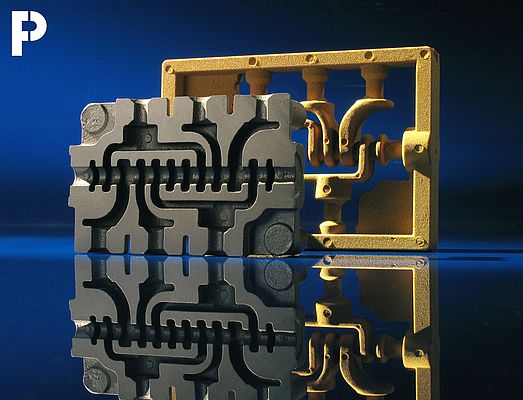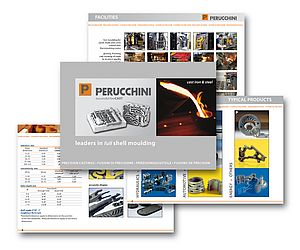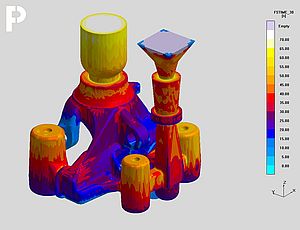The use of castings for mechanical components can reduce and simplify their subsequent machining. The greater the precision of the casting is, the smaller the machining operations are. Among the forming processes applied in foundries, the shell molding is the one that allows the best precision: reduced dimensional tolerances, complex shapes, low surface roughness. Two glued half shells constitute the form where the liquid metal is poured. The shell and the corresponding cores are realized with high refractoriness siliceous sand, coated with thermosetting resins: these give consistency to the shell and resistance to the liquid metal pressure. The thickness of the shell varies from 15 to 25 mm, in relation to the castings weight, which varies from 0,020 to 22 kg. The liquid metal at high temperatures causes the burning of the resins and the subsequent formation of a thin veil of gas that limits the contact between the metal and the shell’s sand: the casting surface is therefore smooth and free of sand inclusions. Perucchini offers full shell molding process that produces castings of the highest precision, reducing, and in some cases eliminating, high machining costs. High standard of quality considerably reduces the castings rejections after the machining operation. The company develops the know-how of the full shell molding, for continuous improvement of castings in nodular, vermicular, ADI and Cr-Ni cast iron. The line of products is developed in stainless, alloy micro-alloy and carbon steel.
Edited by: Teoman Tugsuz



















